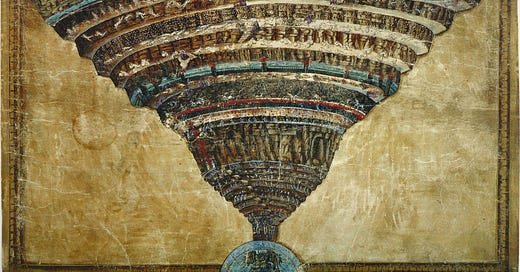Oh hey dad,
It was great to see you last week, however briefly. I was in your neck of the woods for a conversation with our mutual friend Ross Douthat about his new book, Believe: Why Everyone Should be Religious. I’ll tell you what else everyone should do, is get that book when it comes out tomorrow. Even if you’ve already got believing covered, it’s a master class in winsome good sense.
One of the things Ross discusses in the book is the abject failure, evident now to all thinking people, of what’s called “reductionism”—the idea that our sentiments, thoughts, and choices can be reduced to our brain chemistry. Volumes of learned and intimidating argument have been devoted to proving this is so, but it just ain’t. Specific ideas and experiences don’t tend to be reliably “located” in any one cluster of neurons from brain to brain—and anyway, even if they were, what would that explain?
Observing that fear lights up the amygdala does exactly bupkis to describe how the amygdala, which is a hunk of fibrous goo, translates into fear, which is a potent and invisible subjective atmosphere. Neurochemistry and qualitative experience obviously correspond to one another in some way, but the effort to identify them with each other is, at this point, a dead letter.
Since that’s settled, we can move on to the next and more interesting question, the one we’ve been approaching together this month: if brain sparks aren’t thoughts, then what are they? What exactly is the relationship between “down here” and “up there?” And this is where Ross alludes to one very intriguing possibility that was also contemplated by the novelist Aldous Huxley. Maybe the brain is not a source of our thoughts but a funnel for them, condensing and limiting the otherwise limitless soul into manageable ideas and propositions.
To me, it seems like this would help with the problem we’ve been considering, which is how to relate the concrete realities of embodied life on earth to the cosmic infinitude of the spiritual world. We ended last week with C.S. Lewis’s idea—expressed most clearly in his brilliant essay on “Transposition”—that earth is not a separate realm from heaven and hell so much as a distillation of them both, where the enormity of infinite bliss and suffering are shrunken down into the relatively manageable experiences of virtue and vice, pleasure and pain.
You ask how we live eternal life in this rough and solid world of ours. In my experience, this is a big part of the answer. The trick for me is not to abstract away from the present moment but to hurl myself so totally into it that this essay, this embrace, this meal, becomes as much of heaven as I am currently capable of receiving. Any more than that and I imagine my little vessel, in its present form, would split apart entirely. “This is my body.” “Give us this day our daily bread.” We couldn’t ask for more if we tried.
Love,
Spencer






“Maybe the brain is not a source of our thoughts but a funnel for them, condensing and limiting the otherwise limitless soul into manageable ideas and propositions.”
This helps bridge the struggle I have in desire to believe and the ephemeral experience of art or literature, and the very work a day world when I get my head out of the clouds
The mind as the funnel and not the source. Brilliant.
You have certainly given me a lot to think about this morning.